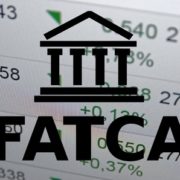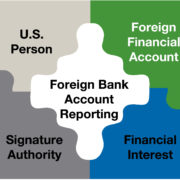DOJ Announces Indictment of Taxpayer for Filing False Non-Willful Certification Under the Federal Streamlined Procedures

Case Background
On August 27, 2019 the Department of Justice (DOJ) announced a superseding indictment of a Florida business man and former Texas CPA for allegedly filing a false document. This was because he made an offshore disclosure using streamlined filing procedures.
The supplemental indictment alleges that, Brain Nelson Booker, a Florida resident, who was in the cocoa trading business in Venezuela, Panama and Florida, filed false Foreign Bank Account Reports (FBARs) for the years 2011-2013. The new indictment also included charges from the original indictment which was brought because Booker filed false income tax returns (under 26 USC § 7206(1) ) for the tax years 2010-2012.
In addition to the false FBAR and tax return charges, the Government alleges that Booker filed a false document under 26 U.S.C. § 7206 (1) when he submitted a certification of non-willfulness in October 2015 as part of a submission using the Streamlined Domestic Offshore Procedures. According to the charging document, Booker “falsely certified that he met all the eligibility requirements for treatment under the streamlined procedures, and falsely claimed, among other things, that his failure to report all income, and pay all tax and submit all required information returns including FBARs was due to non-willful conduct.”
Booker was unavailable for comment, since he fled the United States to a non-extradition jurisdiction.
Government Argument
According to the Government, Booker only reported two foreign financial accounts he maintained in Venezuela on his FBARs and tax returns for 2008-2010, while omitting other accounts in Switzerland, Panama and Singapore.
In 2009 Booker was contacted by the Swiss Bank where he maintained one of his foreign financial accounts. The Bank, who participated in the DOJ’s Swiss Bank Program, notified Booker to either report his account to the IRS or leave the Bank. Subsequently, Booker moved his account to another Swiss Bank.
In July 2015 Booker filed delinquent FBARs for 2008 through 2015, this time reporting all his foreign financial accounts, including the two Venezuelan accounts as well as his Swiss, Panamanian and Singapore accounts. In October 2015 Booker made an offshore disclosure using the streamline procedures. As part of the streamlined procedures, Booker submitted a certification of non-willfulness claiming that his failure to file FBARs identifying all of his accounts was due to the fact he first learned about FBARs in 2008 and was under the mistaken belief that he was only required to report personal foreign financial account and not the accounts held by his business.
How does Booker’s indictment affect tax payers in a similar situation?
This indictment represents the first prosecution for filing a false document in connection with a submission under the streamlined procedures and clearly signals that the IRS is making good on their earlier pledge that they intend to closely scrutinize taxpayer certifications submitted in connection with the streamlined procedures, and further, that they will pursue persons who make false statements in their certifications.
Taxpayers with undeclared foreign financial accounts are afforded an opportunity to come into compliance. The Offshore Voluntary Disclosure Program (OVDP) and the Streamlined Offshore Procedures represent two alternatives for coming into compliance, depending upon whether the failure to file was willful or simply due to negligence. Closely tied to the issue of willfulness is the criminal risk associated with using the streamline procedures to make an offshore disclosure.
Prior to the closure of the OVDP in September of 2018, taxpayers who willfully failed to disclose their offshore assets and/or were at risk of criminal prosecution, could make application to participate in the OVDP.
Once the taxpayer was cleared to make the offshore disclosure, he or she would file eight years of amended income tax returns, as well as eight years of FBARs. The individual would also submit a Miscellaneous Offshore Penalty Worksheet. The Taxpayer would also be required pay the outstanding amount of tax due, together with interest and a 20% accuracy related penalty. Depending upon the circumstances and when the disclosure was made, the taxpayer would pay a miscellaneous offshore penalty equal to 20-50% of in the disclosure year with the highest aggregate balance.
In exchange for the taxpayer coming into compliance, payment of all amounts due, and assuming there were no material misstatements in the taxpayer’s submissions, the IRS would generate a Closing Agreement (Form 906). The Closing Agreement would generally include a representation that the IRS would not refer the case for criminal prosecution. Furthermore, the Closing Agreement would foreclose the possibility of any further income tax or FBAR penalty assessment by the IRS for any year in the disclosure period. The Agreement would also preclude the taxpayer from making any claim for a refund at a later date.
In November of 2018, the IRS the announced the updated Voluntary Disclosure Practice Rules which now include both domestic and offshore disclosures. The penalties under the new regimen are quite onerous when compared to the penalties under prior iterations of the OVDP.
Recognizing that one size doesn’t fit all, the IRS permits taxpayers, whose offshore disclosures present little risk to no risk of criminal prosecution or the assessment of the civil willful FBAR Penalty, to use the streamline offshore procedures. There are two scenarios. One for persons residing outside of the U.S and the other for persons residing in the US
In both cases, the taxpayer will file three years of amended returns and six years of FBARs. In addition, the taxpayer must submit a certification of non-willfulness, wherein he or she must set forth in detail the reasons why the failure to file FBARs was non-willful.
Those residing outside of the U.S. who meets the physical presence requirements are not subject to any FBAR penalty, while those residing in the U.S. pay a 5% penalty in the disclosure year with the highest aggregate balance. In addition, the taxpayer must pay any additional income tax due related to the unreported income associated with his or he offshore accounts.
The key difference between the OVDP and the streamlined procedures is that the OVDP provides a taxpayer with closure, whereas a submission using streamlined procedures does not. As such, those using the streamlined procedures are at risk that the IRS may determine that the taxpayer’s representations, as contained in the certification of non-willfulness were false or unsubstantiated. If such a determination is made, the taxpayer could be subject to the assessment of civil willful FBAR penalties, as well as the possibility of a referral to IRS Criminal Investigation.
The indictment of Booker serves as a cautionary tale for those taxpayers who elect to use the streamlined procedures rather than the new voluntary disclosure practice rules in order to avoid paying higher legal fees and FBAR penalties associated with the later protocol. In this regard, some taxpayers may be tempted to stretch the truth in an effort save on the FBAR penalties and legal fees, only to later find themselves in serious trouble.
The instant indictment should also serve as a wake up call that undertaking an offshore disclosure requires a careful review of the facts with an experienced tax attorney to assess whether a person’s failure to file an FBAR and his “no” response to the Schedule B FBAR disclosure was the result of negligence or a willful attempt to prevent the Government from discovering the taxpayer’s foreign assets and the income derived therefrom.
Ultimately, whenever a criminal risk is present, streamline procedures should be avoided. Likewise, streamline procedures should be avoided where there is a possibility that the facts otherwise support the assessment of the civil willful FBAR penalty, rather than a finding of mere negligence. Taxpayers who struggle with the truth and particularly those with prior dealings with the IRS that have resulted in the taxpayer’s integrity coming into question, should think long and hard before making a false statement in a certification when making a streamlined disclosure. Such actions are shorted sighted and almost always meet with financial disaster.












